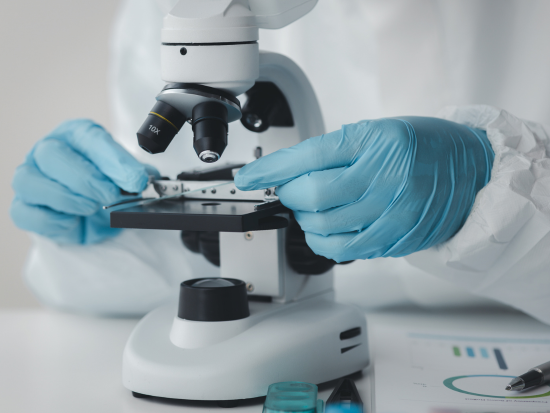 UAB Division of Surgical Oncology Assistant Professor Angela Carter, Ph.D., and UAB Department of Chemistry Professor Sadanandan Velu, Ph.D., received a National Institute on Drug Abuse (NIDA) Cutting Edge Basic Research Award (CEBRA) through the National Institutes of Health (NIH), for their project entitled "Microbial Biofilms as Regulators of Amphetamine Use Disorders."
UAB Division of Surgical Oncology Assistant Professor Angela Carter, Ph.D., and UAB Department of Chemistry Professor Sadanandan Velu, Ph.D., received a National Institute on Drug Abuse (NIDA) Cutting Edge Basic Research Award (CEBRA) through the National Institutes of Health (NIH), for their project entitled "Microbial Biofilms as Regulators of Amphetamine Use Disorders."
Carter's research focuses on understanding the molecular mechanisms underlying the relationships between microbes and hosts. Velu’s research uses structure based drug design to generate novel compounds with medicinal potential. The goal of their current work is to test compounds that target bacterial biofilms as therapeutics for amphetamine use disorders.
"The realization that certain bacteria likely have the ability to alter our drive to consume psychostimulant drugs is relatively new," says Carter. “We hope to identify treatments that can exploit this discovery in a more targeted fashion than the use of broad-spectrum antibiotics.”
Velu emphasizes, “The great strength of collaborative science that combines diverse fields of research is that it allows you to push the boundaries of current knowledge in ways not possible in an isolated environment.”
About the NIH Cutting-Edge Basic Research Award
Through CEBRA, NIDA aims to promote highly innovative research related to the causes, mechanisms, prevention, or treatment of substance use disorders. Specifically, the CEBRA mechanism seeks to fund ideas that, if confirmed, would transform current thinking and approaches.